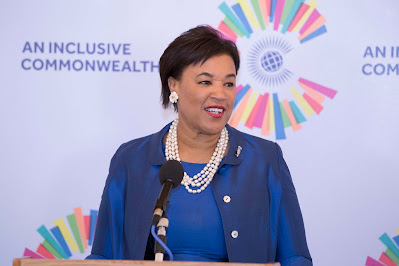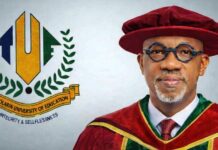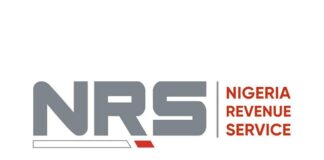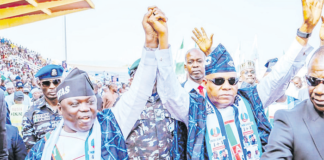Curbing trillion-dollar cost of corruption ‘more important than ever’ – Commonwealth Secretary-General
The current global pressure on resources means curbing the trillion-dollar cost of corruption is “more important than ever”, the Commonwealth Secretary-General, the Rt Hon Patricia Scotland KC, has said.
Speaking from the Seychelles today, the Secretary-General called for “swift and decisive action” to curb the illicit flow of money out of Commonwealth countries and to “build confidence that our institutions and systems in the Commonwealth are corruption-free.”
The COVID-19 pandemic created an environment that was ripe for embezzlement, false claims, kickbacks, and other forms of corruption. The post-pandemic global downturn, rising costs and pressure on resources, has made Commonwealth countries, particularly small states and developing nations, even more vulnerable to the impact of corruption. This crime often sees aid money lost to crime, undermining social and economic development.
‘Corruption costs us quality of life’
On Monday (15th May), the Secretary-General joined Anti-Corruption heads from across Commonwealth Africa for the start of the 13th Annual Commonwealth Regional Anti-Corruption Conference.
The conference, organised by the Commonwealth Secretariat in partnership with the Seychelles Anti-Corruption Commission, is a focal point for the Association of Anti-Corruption Agencies in Commonwealth Africa (set up by the Commonwealth Secretariat in 2013) to meet, discuss and formulate actions to collaboratively tackle systemic corruption and the illicit flow of funds out of the continent.
Opening the event, the Secretary-General said: “While we tend to think of corruption in purely monetary terms, the truth is that it costs us the quality of our lives. No country, region or community is immune.
“It damages education, health, justice, democracy, prosperity and development – and it is one of the biggest impediments to achieving the Sustainable Development Goals. Tackling corruption brings multiple benefits; poverty is reduced, economic stability and growth are increased, and standards of living are raised.”
Trillion-dollar cost of corruption
Each year corruption and illicit financial flows cost the global economy $3.6 trillion, according to the UN.
A trillion US dollar is paid in bribes while an estimated $2.6 trillion are stolen annually through corruption – a sum equivalent to more than five per cent of the global GDP.
In developing countries, according to the United Nations Development Programme, funds lost to corruption are estimated at 10 times the amount of official development assistance.
It was estimated that Africa loses more than $50 billion a year to illicit flows, although this could be as high as $89 billion a year, or 3.7% of its GDP, according to UNCTAD’s Economic Development in Africa Report 2020.
Over the past 50 years, Africa has lost more than $1 trillion equivalent to all the official development assistance received during the same period.
Since women and girls often have less access to health and education, they suffer most from the impact of corruption on aid budgets and government spending.
‘Decisive action’ needed to make Commonwealth corruption free
The Secretary-General added: “We need to take swift and decisive action to improve transparency and accountability, and to build confidence that our institutions and systems in the Commonwealth are corruption-free. Together, we can work towards… an approach which allows us to examine how tax authorities, anti-money laundering authorities and anti-corruption agencies can collaborate to solve this monumental challenge. And an approach which can enable international collaboration to track ill-gotten money and following through more opaque jurisdictions.”
The opening of the conference was attended by President of the Seychelles, HE Wavel Ramkalawan.
He said: “The challenges we face in combatting corruption call for a broad collaboration of agencies, stakeholders, experts and citizens. We do this well, but we could always do it better. I look to every individual in this room today, as well as those watching and listening at home and at work around the Commonwealth for help and support in that quest. We are all gathered for a reason: To come together as one family united through common aspirations; that is, the fight against corruption and the battle we endure when corruption tries to fight back.”
Also speaking at the opening, May de Silva, Head of the Seychelles’ Anti-Corruption Commission, said: “It is important for us to fight corruption, but it is equally important for us to unite when corruption fights back. Let us unite in sharing our experience, skills and resources.”
Commonwealth anti-corruption work
The Commonwealth Secretariat is providing practical technical assistance and development support to help national anti-corruption agencies in Commonwealth countries build their effectiveness in dealing with corruption.
This began in 2013 with the creation of the Association of Anti-Corruption Agencies in Commonwealth Africa to enable the collaborative sharing of expertise and best practices. The same year the Commonwealth Secretariat and the Government of Botswana opened the first continent-wide Commonwealth Anti-Corruption Centre in Gaborone to provide practical guidance and training to officials across Commonwealth Africa.
The Commonwealth Anti-Corruption Benchmarks – a landmark set of measures to support international efforts in tackling corruption – was launched in 2021.















